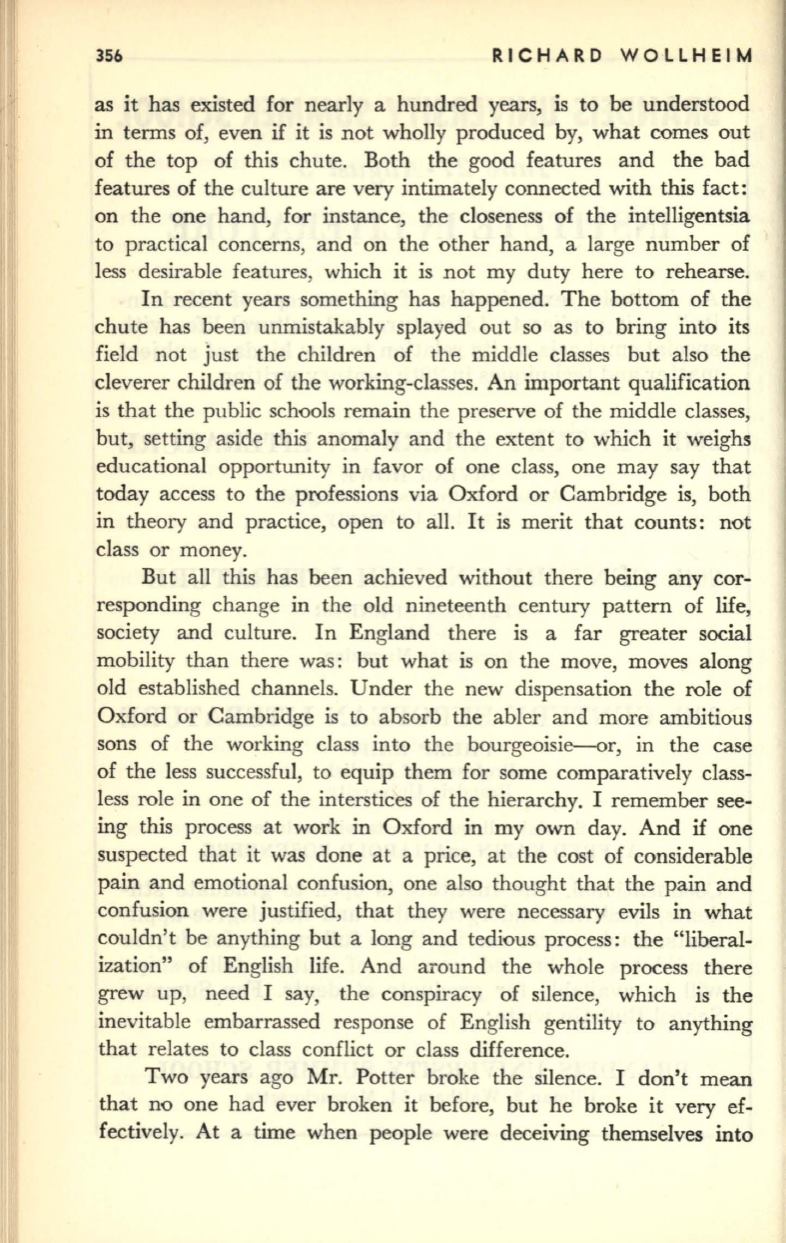
356
RICHARD WOLLHEIM
as it has existed for nearly a hundred years, is to be understood
in terms of, even if it is not wholly produced by, what comes out
of the top of this chute. Both the good features and the bad
features of the culture are very intimately connected with this fact:
on the one hand, for instance, the closeness of the intelligentsia
to practical concerns, and on the other hand, a large number of
less desirable features, which it is not my duty here to rehearse.
In recent years something has happened. The bottom of the
chute has been unmistakably splayed out so as to bring into its
field not Just the children of the middle classes but also the
cleverer children of the working-classes. An important qualification
is that the public schools remain the preserve of the middle classes,
but, setting aside this anomaly and the extent to which it weighs
educational opportunity in favor of one class, one may say that
today access to the professions via Oxford or Cambridge is, both
in theory and practice, open to all. It is merit that counts: not
class or money.
But all this has been achieved without there being any cor–
responding change in the old nineteenth century pattern of life,
society and culture. In England there is a far greater social
mobility than there was: but what is on the move, moves along
old established channels. Under the new dispensation the role of
Oxford or Cambridge is to absorb the abler and more ambitious
sons of the working class into the bourgeoisie-or, in the case
of the less successful, to equip them for some comparatively class–
less role in one of the interstices of the hierarchy. I remember see–
ing this process at work in Oxford in my own day. And
if
one
suspected that it was done at a price, at the cost of considerable
pain and emotional confusion, one also thought that the pain and
confusion were justified, that they were necessary evils in what
couldn't be anything but a long and tedious process: the "liberal–
ization" of English life. And around the whole process there
grew up, need I say, the conspiracy of silence, which is the
inevitable embarrassed response of English gentility to anything
that relates to class conflict or class difference.
Two years ago Mr. Potter broke the silence. I don't mean
that no one had ever broken it before, but he broke it very
ef–
fectively. At a time when people were deceiving themselves into


